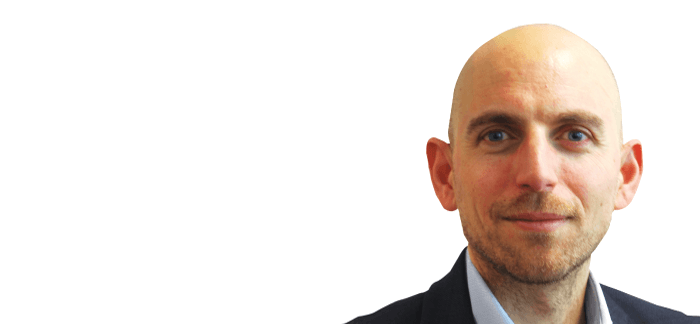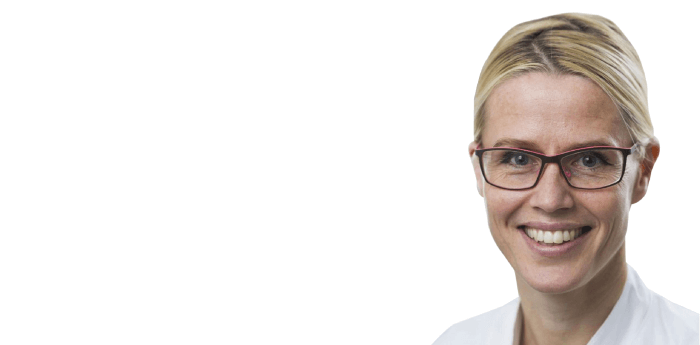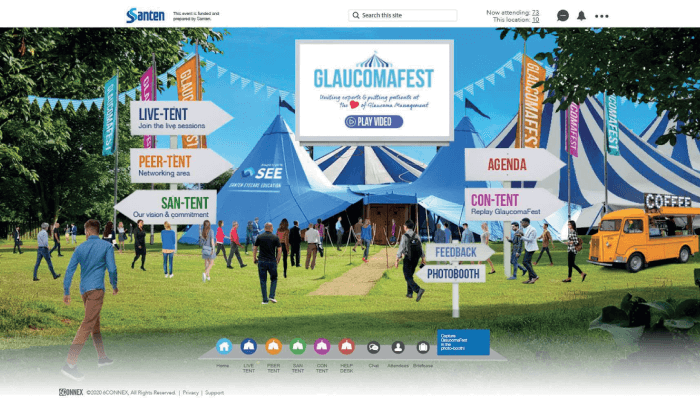
GlaucomaFest – a medical education online experience organized by Santen as part of their SEE program (Santen Eyecare Education) – united glaucoma specialists from all over Europe about practices and patient centric approaches in glaucoma management. Here, we catch up with co-chairs Miriam Kolko and Karl Mercieca to explore the secrets of online event success.
Why did you decide to be a part – and a face – of GlaucomaFest?
Karl Mercieca (Consultant Ophthalmologist at the Manchester Royal Eye Hospital, UK): The year 2020 was a difficult one – with glaucoma specialists around the world unable to work normally or meet at international events to discuss ideas in person. When the first wave of the pandemic hit, I was given the task of organizing daily tutorials for trainees and residents from the Manchester Royal Eye Hospital. It quickly became clear to me that to keep people interested day in, day out, I had to become more inventive with the format and delivery of education. This effort coincided with Santen approaching me with the novel idea of GlaucomaFest – an opportunity to unite glaucoma specialists to tackle key issues affecting glaucoma patients and discuss the most important advances in the field. The event was designed to break through the pandemic-induced fatigue and make people excited about what they do again. Amazing content – and the look and feel of the live event – made it stand out from the crowd of available online webinars and conferences.
Miriam Kolko (Clinical Associate Professor of Translational Pharmacology at the Department of Clinical Medicine at the University of Copenhagen and chief assistant at the Copenhagen University Hospital, Denmark): When I first heard about the concept for GlaucomaFest, I was intrigued by its originality. The idea Santen had was different from any other online offerings available to glaucoma specialists; it was brave, daring, and innovative. I was honored to be asked to chair the session together with Karl Mercieca. The Santen Eyecare Education team did a great job, bringing prominent speakers to elevate the educational part of the event to a very high scientific level. At first I had some reservations about the name GlaucomaFest; I wanted it to be absolutely clear that we were celebrating glaucoma excellence, and not the disease itself, and I feel that this message came across really well.
What key messages did you want to put across to the attendees?
Kolko: We wanted them to receive the most up-to-date information on glaucoma management, with a look into the future – where glaucoma surgery is headed. For example, sharing the most recent advances in establishing virtual clinics and using artificial intelligence to detect, diagnose, and manage glaucoma. We wanted to get a good balance between presenting the status quo, and understanding the direction in which we are all moving. One absolutely crucial idea that ran through the program was putting the patient in the very center of glaucoma care.
Mercieca: Indeed, patient centricity is extremely important to successfully managing glaucoma. The patient, and their individual journey, has to be our main focus. We have to convince them that continuing with their prescribed treatment, whether it’s therapeutic or surgical, is the best course of action for them. GlaucomaFest was all about this message; it was the bottom line of every talk – however varied, important, or challenging the topic.

Were you involved in choosing speakers and preparing the program?
Kolko: I felt that the Santen team had thought the concept through really well even before I became involved. They were highly collaborative and open to new ideas. When I joined the organizers, I helped select papers that were most relevant and proposed some presentation titles. Karl and I were invited to take an active role in the planning – I was able to offer my comments and suggestions, which I found very inspiring.
Mercieca: I was involved from the very start, when the event was just a seed of an idea. We began by discussing the theme of the past, present, and future of glaucoma, while thinking who would be the best fit to present each of the parts. We aimed to select speakers not just by the topic they specialize in, but also by the way they present; it was really important to choose people who could really harmonize with the style and spirit of the event. I’m very proud of being involved in setting the agenda, but I really have to praise the Santen Eyecare Education team. It seemed like every time I suggested an idea, they worked on it to make it even better.
Rafael Fischer, Marketing Director EMEA & Gabriela Saborio, Medical Affairs Director EMEA, Santen, share the vision behind GlaucomaFest
When the pandemic restrictions first came into force across Europe, we felt it was critical to offer healthcare professionals medical education initiatives in a creative and engaging format. Of course, we were not alone – other organizations in the ophthalmology community were also switching strategies and moved their activities online. Subsequently, healthcare professionals – including glaucoma specialists – were quickly overloaded with webinars, talking heads. It became evident that a new approach was needed.
Reaching out to glaucoma professionals about how to creatively deliver innovative medical education content, we realized that there was a really high need for vital messages about glaucoma in their daily practice, along with a strong interest in activities facilitating virtual interactions with colleagues in a relaxed atmosphere.
Drawing on those insights, the SEE team developed GlaucomaFest, with the idea of recognizing our commitment for excellence in glaucoma management. The agenda was created specifically to focus on lessons learned from the past, how glaucoma specialists work today, and what they and their patients can look forward to in the future.
The GlaucomaFest virtual platform was based on the “festival” theme. The virtual environment provided the audience access to live sessions via multiple “tents” with real click points, and providing a “stage” for the presenters. All contributors were enthusiastic about the concept and curious to see how this unique experience would work. Because they believed in our vision, they all endorsed the event and spread the word among colleagues and members of their glaucoma societies. We made sure the GlaucomaFest program was varied, with presentations, break-out parallel sessions, and a panel discussion, as well as interactive elements to keep the audience engaged.
The feedback we have received from healthcare professionals has been phenomenal. Notably, attendees felt engaged with the novel format of GlaucomaFest and highlighted that the virtual GlaucomaFest experience felt much closer to a face-to-face meeting compared to the standard webinar format.
Immediately after event, we received requests for a second edition of GlaucomaFest to be held this year. As a specialist ophthalmology company, we will continue to strive to push boundaries in glaucoma management, ensuring the patient is the center of treatment decisions, and deliver unique medical edutainment for our customers. Watch this space!
When planning “medical edutainment,” how do you keep the balance right between the educational and entertaining elements?
Mercieca: As we know more about how people learn in different ways, education for clinicians is changing. The pandemic has accelerated the move to online communication and learning, but we were already heading this way before it began. Research into using gaming for education has shown that introducing entertaining and interactive elements to teaching results in people being more engaged, actively participating and asking questions, and absorbing more knowledge. And that is why “medical edutainment” is becoming a more popular, and more important part of the education on offer.
However, it is important that certain rules are firmly adhered to. In medicine, it is crucial that the condition or topic you deal with is not trivialized – after all, we are doctors, dealing with serious, sight-threatening, and life-changing diseases. Entertainment elements have to be appropriate to the topic, and the substance of the talks or discussions should never be forgotten. I feel that GlaucomaFest achieved the goal of making glaucoma management interesting, with a novel, entertaining twist – but getting the main educational messages across was the most vital part of it.
Kolko: We were very careful to make sure that any entertaining elements did not take away from the seriousness of glaucoma, and – judging by the overwhelmingly positive feedback – we got it right. This success bodes well for improving online educational events in the future, but you can only learn how to balance things right by doing it. This is not only important while interacting with peers, but especially when dealing with patients – making them realize that we are human can make them a little bit less frightened of their condition and its management.
What are your thoughts after the event – would you play an active part again?
Kolko: It was a great success! The feedback has been so positive I would be delighted to be part of similar future initiatives again invited either as a chair, a speaker, or even just a participant. I feel that the topics we touched upon at GlaucomaFest were highly relevant in today’s standard practices. The audience was left with a sense of time very well spent.
Mercieca: Would I get involved again? 100 percent yes! On top of the very positive formal feedback, we also received so many texts and emails from colleagues, commenting on how wonderful the sessions were, even within the first hour of the going live! People still stop me in the hospital corridors and tell me how much they enjoyed it. Just like amazing sessions at live conferences, this was the talk of the subspecialty – a spectacular experience we were all part of.

